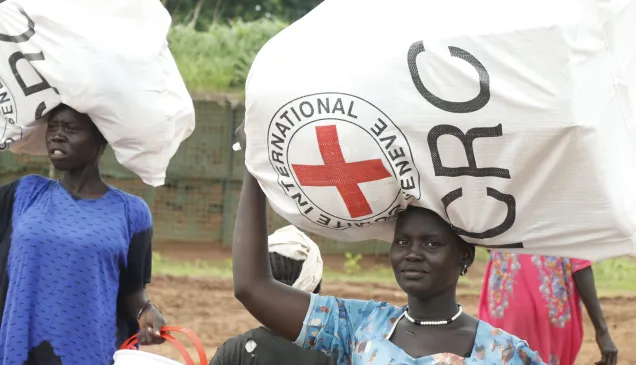Aweil East/Juba (ICRC) – Some 40,000 people in Aweil East, Northern Bahar El Ghazal state, now have access to clean water thanks to the entry into service today of eight new water points installed by the International Committee of the Red Cross (ICRC).
"Aweil East is an area where the seasonal migration of tribes, the influx of people returning from Sudan and the likelihood of flooding during the rainy season have resulted in water facilities being overstretched. People there have insufficient access to clean water," said Joan Audierne, head of the ICRC sub-delegation in Wau. "The new water points will not only help stave off water-borne disease but also ease the pressure water points that had already been in use."
The water points will provide clean water for people in Warwar town, Warwar school, Marjal, Mobil Geng, Pariyak, Machar-mou, Rumwat and Guengkou. They were set up in close coordination with the local community and the state's Ministry of Rural Water Supply and Sanitation.
Each of the water points has been fitted with solar-powered pumps and backup generators to ensure a steady water supply 24 hours a day. In addition, 18 technicians have been trained by the ICRC to attend to regular maintenance.
The ICRC has also been working on water supply projects in other areas of Northern Bahar El Ghazal with the aim of providing conflict-stricken communities with clean drinking water.
The ICRC has been working since 1980 in southern Sudan, where it helps people affected by violence. In Northern Bahel El Ghazal, the ICRC and the South Sudan Red Cross have been distributing food and other essential items for people displaced as a result of violence, providing farmers with the seed and tools they need to fend for themselves, providing disabled people with physical rehabilitation services so that they can resume normal lives, and restoring contact between people separated by conflict.
For further information, please contact:
Pawel Krzysiek, ICRC Juba, tel: +211 912 36 00 38



